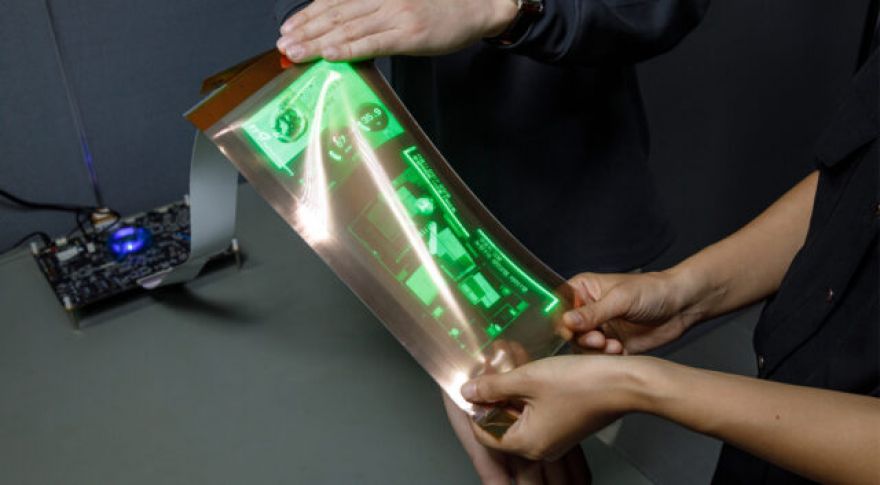
LG Shows Off a 12-Inch Display That Can Stretch to 14 Inches
LG before it could get around to making a foldable smartphone, but the company’s display unit continues to develop technology that could make future mobile devices more flexible. LG Display has just revealed a stretchable display that can expand from 12 to 14 inches. It’s not quite ready to be integrated into your next gadget, but it’s a step forward for display technology.
LG says the new stretchable display meets several important thresholds for viability. It has full RGB color rather than monochrome, and the resolution works out to about 100 pixels per inch. That would be on the low side for a smartphone, but most computer monitors are in that neighborhood.
We saw foldable OLED demos for years at trade shows, but it took time for the technology to become mature enough to reach consumer products. The is currently just that — a display. LG has rigged it to show some test images while it’s being folded and stretched, but future free-form displays (LG’s term) could move beyond current foldables.
Most of the demos of “stretchable” devices have actually relied on displays that fold or roll inside a device frame. LG likens the structure of its new display to a rubber band, adding that it has high flexibility (obviously), durability, and reliability. It uses a film-type substrate made of the same silicone that is used in contact lenses. It displays images using a micro-LED array with a pixel pitch (the center-to-center distance between adjacent pixels) under 40μm.

It sees this technology as ripe for commercialization. Current foldable smartphones like the Samsung Galaxy Z series can expand beyond pocket-sized with their flexible OLEDs, but they only fold one way. That means you have a mechanical hinge that could eventually fail. LG’s new screen can stretch, roll, and fold in any direction. LG claims its flexible structure can withstand repeated changes in conformation without damage.
LG sees a future in which this technology is integrated into more than computers. The lightweight and flexible nature of the material could make it ideal for attaching to clothing or skin. Although, this is still a prototype, produced as part of a large-scale research project funded by the South Korean Ministry of Trade, Industry, and Energy (MOTIE). A consumer product needs to be able to operate for years under daily use, and foldable OLEDs are only just getting there after years of similar prototypes. But perhaps the next evolution of that idea is along the lines of a free-form display.
Now read: